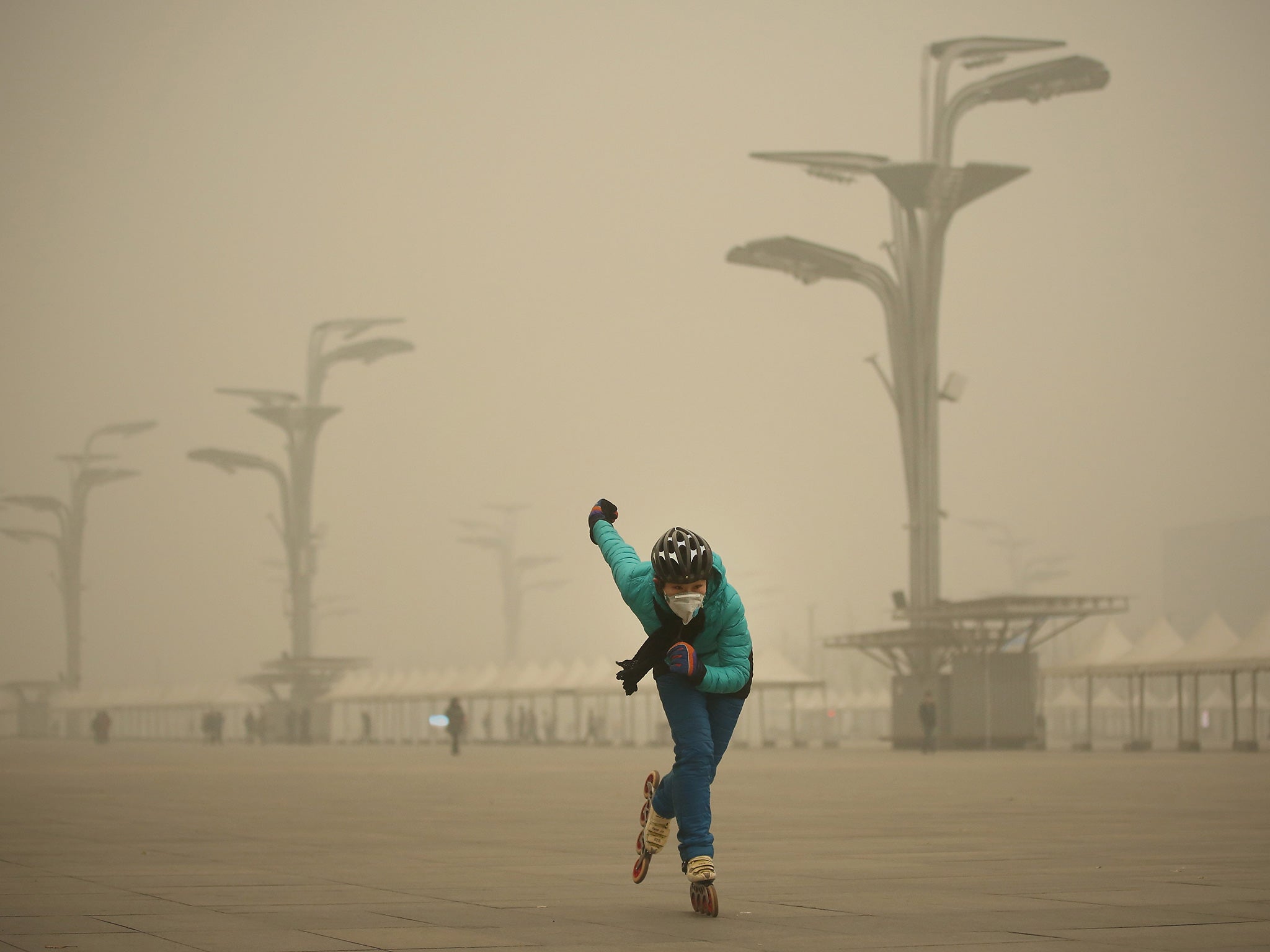Blanketed in acrid smog, Beijing is waking up to the crisis of climate change
World View: Average temperatures in China have already been rising faster than the global average, and that the trend is likely to continue

The sun, like a hazy chandelier, casts a beige glow over Beijing city on smoggy days. We have been suffering through severe air pollution, with measures of harmful fine particulates hitting the feared 700 mark in the capital. For seven days, smog has blanketed the city, as it has before and will again. Children are advised to stay indoors, face masks on, and social media is filled with photos of dim horizons and complaints.
The people of China and its media are all too aware of the consequences of environmental degradation. An editorial in state-owned newspaper The China Daily, published last Wednesday, lamented that the severity of the air pollution warranted more action by local authorities, and that “people’s health should deserve more attention than the GDP figure”.
Development in China has come at a serious cost to the environment and people’s health, a reality people contend with daily. Water safety, food contamination, soil poisoning and air pollution are all concerns. But does that extend to climate change? With the urgency of air pollution that can be seen and smelt (when it is smoggy in Beijing, the air is acrid), the long-term effects of greenhouse gas emissions and global warming might take a back seat in the minds of citizens.
But the Chinese government appears to have upgraded climate change in its priorities. A government report published ahead of the Paris climate talks, the “Third National Climate Change Assessment Report” – compiled by 550 scientists and experts – warned of the dangers to China’s environment and security.
This week, representatives from 195 countries negotiate in the French capital about a document that will affect the future of the planet and its people. The climate change talks are laden with big expectations. Key to this is the perception that a shift has occurred among the biggest polluting countries: China, the US, and (to a lesser extent) India. Among the big polluters, there is increased political will to make binding agreements in tackling CO2 emissions.
Together, the top three greenhouse emitters account for more than 40 per cent of the world’s emissions, with China significantly in front of the US, the next biggest emitter, and India. As the world’s leading emitter, China holds the cards in the Paris negotiations. It has support among developing countries such as India, which argues that it should be given the time and leeway that developed countries had in economic advancement.
Part of the difficulty in the Paris talks will be in negotiating this difficult terrain whereby developing nations will want financial assistance and latitude to adjust their reliance on fossil fuels while still being allowed to advance their economies to enjoy the wealth and lifestyles that developed nations have.
If this brings frustration, then consider where the gifts shortly to be wrapped in boxes under Christmas trees will have come from. A report in Nature Climate Change blames a third to a fifth of emissions from China on manufacturing for export. The argument from China that the West has simply outsourced its emissions is not easy to bypass.
But the Chinese government knows too that a world of water scarcity, drought, and agricultural malaise is not a future that it wants. This is especially prescient considering that the Chinese climate report stated that average temperatures in China have already been rising faster than the global average, and that the trend is likely to continue. On Friday, the Chinese State Council said it planned to begin claiming compensation from polluting companies and individuals, particularly those who damage state property, over the next two years.
The survival of the Communist regime, as always, is of utmost import, and a country affected so severely by rising temperatures does not suggest a stable future. Security problems and protests will probably arise, as they sometimes do already. The Chinese government needs to lead on two fronts: one where it takes leadership on the international stage, for its own interests as much as the world’s; and on its own doorstep, lest its people choke on the “benefits” of economic progress.
But the politicking between developed and developing countries in Paris might lead to watered-down terms for agreements on greenhouse gas emissions. Come 11 December, when talks are due to end, we will see whether China will have got its concessions, or whether developed nations will have got theirs. But a future where action and conviction on tackling climate change supersedes concessions is the one the world needs.
Join our commenting forum
Join thought-provoking conversations, follow other Independent readers and see their replies
Comments